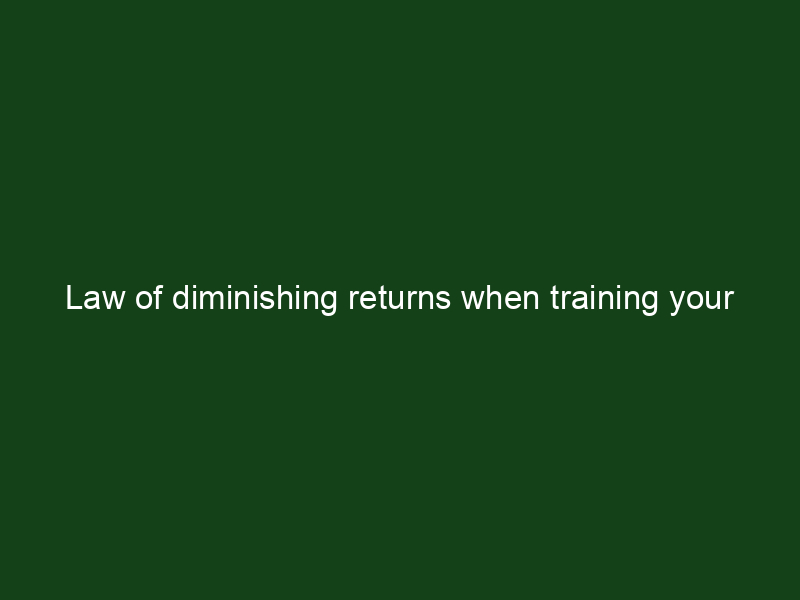Does learning more generate better outcome? This is a common question I am asked. For example here:
JS:
What are reasonable Speed-Reading goals? Hello. I started going through the course materials just over a week ago and I set an initial specific goal of reading 2000 wpm by April of this year (about 6 weeks away). However, as I progress through the course and check out the supplimentary materials (especially the interview with all three of the course authors), I realize this is probably not a realistic goal. So, how can I / we set more realistic goals?
Lev Goldentouch:
There is a law of diminishing returns. With ~1 hour per day for 6 weeks you can get somewhere ~600wpm. It typically takes ~100 hours of practice to get 1000wpm. This means ~9 weeks for 90 min a day of practice or 6 weeks of 2.5 hours per day, when practice includes correct reading per learning stage as well as specific training exercises. It takes about 1000 hours of practice to get 2000wpm….
The law of diminishing returns has its origins in economics. Generally the law of diminishing returns in psychology applies to the gratification we get from our exposure to a stimulus. To what extent does it apply to brain training?
What is the reason for this “law of diminishing returns” when we consider brain training? I do not have one simple answer, there are some good ideas though:
Burnout
This is the first aspect to address. We discuss a lot how to organize your practicing sessions. I do not want to repeat myself here. If you use progressive overload, pomodoro breaks and cap training sessions at 90 min per session, 3 sessions per day, you should not get burned out.
Boredom
Our brain gets bored from repeatable training. There are only so many unique training exercises available out there. Unless we do a totally new exercise, the revenue we get from repeating the same exercises is reduced over time. We try to mitigate some of the effect by asking to vary personal goals for the same exercise: focus on speed or on retention, memorize in animations/mind palaces/mindmaps, alternate logical and creative markers, use more advanced methods like PAO to spice things up. This definitely helps, but only to some extent.
Residual habits
At each level of training we need to adapt a different set of skills and habits. It takes time till new habits are adapted and we are ready to move on. As the amount of acquired habits rises, we have some aggregate effect of small issues we did not take care of. Eventually, to move on to the next skill we need to master the basics perfectly, which may require going over the same materials several times. This multi-pass is psychologically grinding and people try to avoid it at all costs. Improving the fundamental skills and repeating training is a huge part of top-level performance, so it is best to except repetition as a part of life.
Relearning
When we start learning we simplify some facts and exercises to facilitate training. At some point the approximation start to fail, and we need to relearn the basics. Some people simply cannot handle changing assumptions and prefer to stay within the limits of initial approximation. Finding your own path, and changing the basic assumptions to fit your individuality is not for everyone, yet it is a necessary part of personal growth.
Changing mechanisms
At the beginning, we focus on exercises with the highest return on investment. With time we deplete the potential of these most effective exercises and need to move to more complex exercises, activate more complex mechanisms of our brain. Naturally this increases the learning time…
Facing difficulties
People are different. Each of us has issues with a different part of training. At the beginning it is possible to work around our difficulties. However with time, the workarounds are no longer effective and we need to face our true challenges and make a real change.
Perseverance
It is very challenging to maintain a training schedule over long periods. Over time, we tend to deviate from our schedule, and our motivation wanes. Perseverance is a skill possessed by a select few, while the rest of us settle for a “good enough” level.
Whatever the reason for your struggle, you may find that achieving reasonable progress requires more training over time. Settling for “good enough” can be a better choice than striving for perfection. Most of our students can read at 800 wpm with 80% retention, while very few can exceed 1200 wpm with 85% retention. This is perfectly fine as long as you are satisfied with your results.

Get 4 Free Sample Chapters of the Key To Study Book
Get access to advanced training, and a selection of free apps to train your reading speed and visual memory

